Welcome to A Wild Green Heart. How's your heart today? Whatever shape it is in, it is honoured here.
Today I'm continuing my short series on the theme of longing, and I'm going to start with a poem, by Goethe. I sense that poetry is the great territory of longing; the natural form for its expression, the place it likes to roam around and howl at the moon.
This poem, Blessed Longing, I came across in a book I've mentioned on here before: Anam Cara (or Soul Friend) by John O'Donohue, who also translated this version of the poem.
Blessed Longing Tell no one else, only the wise For the crowd will sneer at once I wish to praise what is fully alive, What longs to flame toward death. When the calm enfolds the love-nights That created you, where you have created A feeling from the Unknown steals over you While the tranquil candle burns. You remain no longer caught In the penumbral gloom You are stirred and new, you desire To soar to higher creativity. No distance makes you ambivalent. You come on wings, enchanted In such hunger for light, you Become the butterfly burnt to nothing. So long as you have not lived this: To die is to become new, You remain a gloomy guest On the dark earth.
To die is to become new
In Anam Cara, O’Donohue goes on to say this about Goethe's poem:
This poem captures the wonderful spiritual force at the heart of longing. It suggests that true vitality is hidden within longing. When you give in to creative passion, it will bring you to the ultimate thresholds of transfiguration and renewal. This growth causes pain but it is a sacred pain. It would be much more tragic to have cautiously avoided these depths and remained marooned on the shiny surfaces of the banal.
- from Anam Cara
Apart from O'Donohue's beautiful language, I am struck by this sense of his suggestion that there's something powerful hidden inside longing - a vitality, a spiritual force, a creative passion. This very much reminds me of William Blake and his forceful pursuit of the Imagination as the highest possible expression of human life, as I mentioned a few weeks ago.
And thus it reminds me that this exploration of the nature of longing sprouted from an exploration of the Imaginal Realm. They are intrinsically linked in some way, it seems, though I still can't quite put my finger on it. Perhaps it is so that one element of longing is our deep yearning to be in that place of unforced creative flow; of pure self-expression and deep Imagination. If you've ever been there, you know exactly what I'm talking about.
I suggested last week that our longing for connection - to other people, to place, to more-than-human beings, to the divine - is already met, but needs to be continually rediscovered; a process undertaken by weaving together our fidelity to this notion, and the freely given grace to realise it over time. A grace that is especially necessary in our modern western society. If our longing also encompasses a yearning to express ourselves in the world, as well as to feel connected to it, it strikes me that, as with experiencing connection, the best we can do is to create the conditions for it to happen. No one can simply make creative flow happen. But we can discover the times and places, the practices and people and resources, that best support us to allow flow to happen. Which brings me back, again, to fidelity. Fidelity to self and to practice, as a way of setting the conditions to best allow us to enter a creative flow state… which itself feels, to me, like a kind of grace.
Grace
This process of seeking to meet the great longing of our hearts is an ongoing, lifelong one. Because, as I've referenced in all of these posts on longing, unlike desire, which kids us that it can be fulfilled - if only we get that new car / job / pair of shoes / home / holiday / whatever - but will simply pop up again afterwards, longing doesn't have any such cover story. It exists for a different purpose, to remind us to hold wonder at the gift that is life. And the more I think about it, the more I sense that purpose might just make it the most crucially important emotion in human experience - if we will recognise it and honour it appropriately. If we will acknowledge that it will never fit the mould we've been force-fed to accept from capitalism.
With this in mind, I shall turn to another person who has explored this subject matter in some depth, and found much better ways to talk about it than me. Here are some thoughts from the marvellous mind of poet David Whyte:
Longing is divine discontent, the unendurable present finding a physical doorway to awe and discovery that frightens and emboldens, humiliates and beckons, makes us into pilgrim souls and sets us on some road that starts in the center of the body, and then leads out, like an uncaring invitation, like a comet’s passing tail, glimpsed only for a moment but making us willing to give up our perfect house, our paid for home and our accumulated belongings.
- From Consolations
I like this so much, and one of the reasons is that David Whyte appears to be suggesting that pursuing our longing is indeed in active opposition to pursuing our desires - assuming those desires are informed by the culture we are immersed in. Safety and possessions are clearly the territory of capitalist desire. Longing, it is suggested here, takes us in an entirely different direction.
I'm reminded of a short post I read on here earlier this week, about desire paths. And also of my dream-poem about the meadow in last week's piece - in particular, the last two stanzas:
It is not merely the meadow itself that induces my intangible yearning; but also knowing there are two roads home, and that the longer one holds wonder. I remember less of this longer route home than I do of the meadow itself; but once I've discovered its magic I know it's the only way I will ever take.
If a desire path is a short cut made by humans across a piece of land as a response to a created path taking an unnecessarily long route, then, by my logic, a “longing path” would be one that disappears off into the lonely distance, taking you away from home and the familiar, but tugging gently at your heart all the while.
I like to think that David would agree. Here's a little more from his book Consolations:
Longing has its own secret, future destination, and its own seasonal emergence from within, a ripening from the core, a seed growing in our own bodies; it is as if we are put into relationship with an enormous distance inside us leading back to some unknown origin with its own secret timing indifferent to our wills, and gifted at the same time with an intimate sense of proximity, to a lover, to a future, to a transformation, to a life we want for ourselves, and to the beauty of the sky and the ground that surrounds us.
I find these words intensely moving and wonderfully rich. I love the sense of internal spaciousness and distance he conveys, the suggestion of the universe that resides within each soul. I love the entwined themes of mystery and intimacy, suggesting longing is something so very close and so completely unreachable. But most of all I love the phrase, a seed growing in our own bodies, because that is the precise metaphor I ended up using to describe the enormity of the longing I felt throughout the second half of 2016. Here's a little context.
In the summer of 2016, I visited Rio de Janeiro as a member of a cultural exchange focused on arts and homelessness. A significant part of me never came home. Or perhaps, all of me came home, but with the parts rearranged wholesale, so that nothing was where I was used to finding it. I was fractured, displaced, disoriented.
Ipanema beach, Rio
It was just before the summer Olympics were held in Rio. It was the first time in over 15 years that I had travelled so far overseas. The team was made up of such fascinating people - all of them working in the arts. The whole exchange was full of wonder, excitement and mystery.
I frequently found myself saying that even if you'd locked me in a room with the other delegates for a week, I'd have had a great time. But to be with them in Rio, staying a stone's throw from Copacabana beach, on a whirlwind tour of arts venues, homelessness services, meals out, circuses, rehearsals and a huge final celebration event. Well. It was a lot! I realised what a small world I'd been inhabiting for so long.
Circo de Crescer & Viver (Grow & Live Circus) Rio. A circus that is also a social project - taking paying young people and also those from the favelas, at no cost.
On the last day we held an incredible celebration of arts and homelessness - visual and performance work, followed by ongoing dancing and partying. The photo below sums up the vibe perfectly. I'm in that picture, and I can still feel the sensation of utter festivity in my body when I look at it.
“Celebra” - photo by William Rosa
After the celebration we had a meal out, then some of us found our way to a nightclub where we danced samba and drank far too much.
I spent the following day with the worst hangover of my life (if you've ever had more than the stated maximum of four caipirinhas - and I can tell you that I lost count quite early on - you'll know exactly what I mean), a hip injury from dancing so hard, and an immense yearning to do the whole trip all over again. Instead, I flew home to Manchester that night. But, in truth, part of me never really came home. My body returned; but my soul remained in a state of limbo, bewildered. I was utterly disoriented, and I inhabited various states of lostness for a long time afterwards.
In the following weeks, as I found myself continuing to feel rattled and disoriented in the familiar places of work and home and city, I tried again and again to find the words to describe this sense of displacement. Eventually, after more drafts than I've written for any poem before or since, I wrote this:
The Seed On my return from distant shores, I’m surprised to find an unknown object in my pocket. Russet and wrinkled, the size of an acorn and tactile: some kind of seed. Curious as to how it arrived there, I cast my mind back but cannot recall picking it up. I replace it there, rubbing it frequently between thumb and forefinger like a charm. It is comforting to feel its solid presence as I go about my daily life. After a couple of weeks, to my amazement, the seed starts to germinate. Slowly at first, a tiny, tender shoot poking through a crack in the outer husk, hunting for sunlight. I marvel at this transplantation of life, still wondering as I fall asleep what exotic madness I have carried back with me. It feeds on my dreams and pullulates wildly, spilling out of my pocket in the night. I wake to a riot of vivid green: tendrils have crept up my torso; roots down my legs, seeking anchorage. I am beguiled by this mysterious new part of me, whose leaves now find my face and start to bud. Roots curl rigidly round my thighs, entwine their hairs with those on my calves. Once I discover I can inflict no lasting harm – tearing provokes a denser growth – I leave it be, brushing aside its branches as I try to find my way. I wander streets that grow increasingly unfamiliar. My roaming becomes more erratic; disorientation grows. I find myself navigating horror and enchantment in turn until revelation dawns: I don’t know where I am. Small fruits have appeared, just above my lips. Their taste is familiar, and as I chew – the juice still on my tongue – this strange plant consumes me. I’ve been uprooted. I must go home.
That intensity of longing was inevitably going to lead to some kind of rupture, and that's exactly what unfolded over subsequent years. The beginnings of chronic ill health and all its incursions in 2017, then psychotherapy, then separation and divorce, then leaving the world of work behind altogether. Longing does indeed lead you along a winding road, far from home.
And, as I've stated several times these last few posts, it stays with you as well. As it should, if David Whyte is correct, and longing is divine discontent.
Let's turn to one final poem before wrapping all this up for now. This one's a belter, a poem I've deeply loved for a long time, by one of my all time favourite poets, Rainer Maria Rilke.
God speaks to each of us as he makes us, then walks with us silently out of the night. These are the words we dimly hear: You, sent out beyond your recall, go to the limits of your longing. Embody me. Flare up like a flame and make big shadows I can move in. Let everything happen to you: beauty and terror. Just keep going. No feeling is final. Don’t let yourself lose me. Nearby is the country they call life. You will know it by its seriousness. Give me your hand. - Rainer Maria Rilke Book of Hours, I 59 Translated by Joanna Macy and Anita Barrows
Go to the limits of your longing. Embody me.
If anything ever sounded like a mandate from the Divine to my soul, that's it, right there. If I were to turn that into a kind of proverb for humanity's purpose I might weave in Christ's declaration: “I have come that they may have life, and have it to the full.” (Gospel of John 10:10) along with the words of second century bishop, Irenaeus: “The glory of god is man, fully alive.”
Thus I might suggest:
We are here to embody the divine. Beware your surface desires, and anything that suggests it can be easily fulfilled. There are no desire paths to Wholeness. Follow the road of your deepest longing, wherever it leads you. Live your fullest life.
That's not really where I expected to end up when I started today's post, but I'm going to leave it here anyway, as a way of wrapping up my musings on longing for the time being. Please do leave your comments on anything at all related to this post - it's always a real joy to hear back from you!
Meanwhile, on the poetry zine front, here's a sneaky peek at the covers of the next three, which I'm increasingly convinced I should release as a bundle. The Physical Body and The Emotional Body are 32 pages each, The Relational Body is 36 pages because, well, there were more people to talk about!
Thanks for reading. I wonder what longings are stirring deep within you? What long and winding roads have they led you along? What poems do you know that speak to this mysteriously intimate emotion?


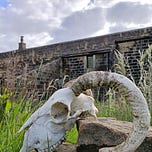


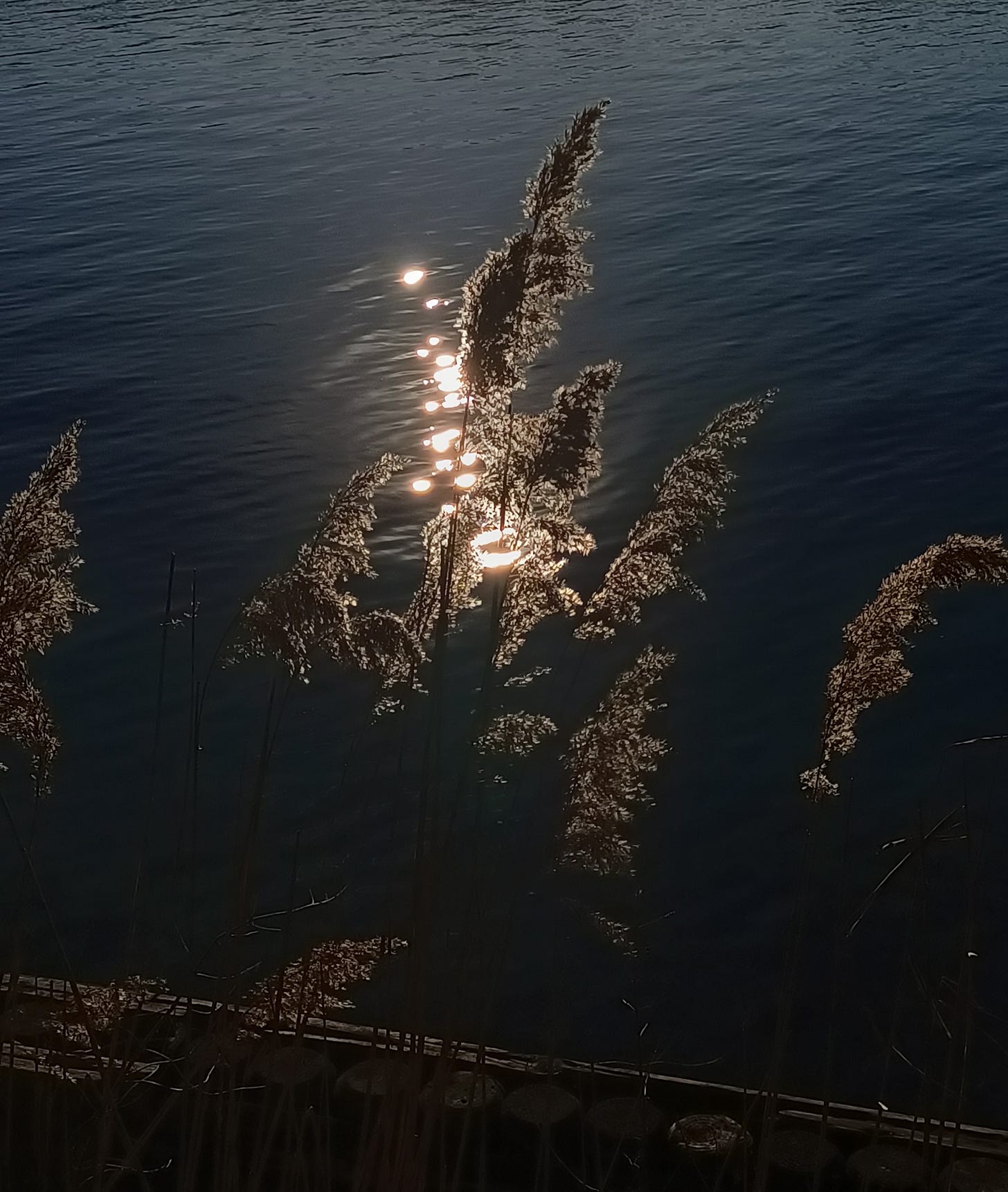
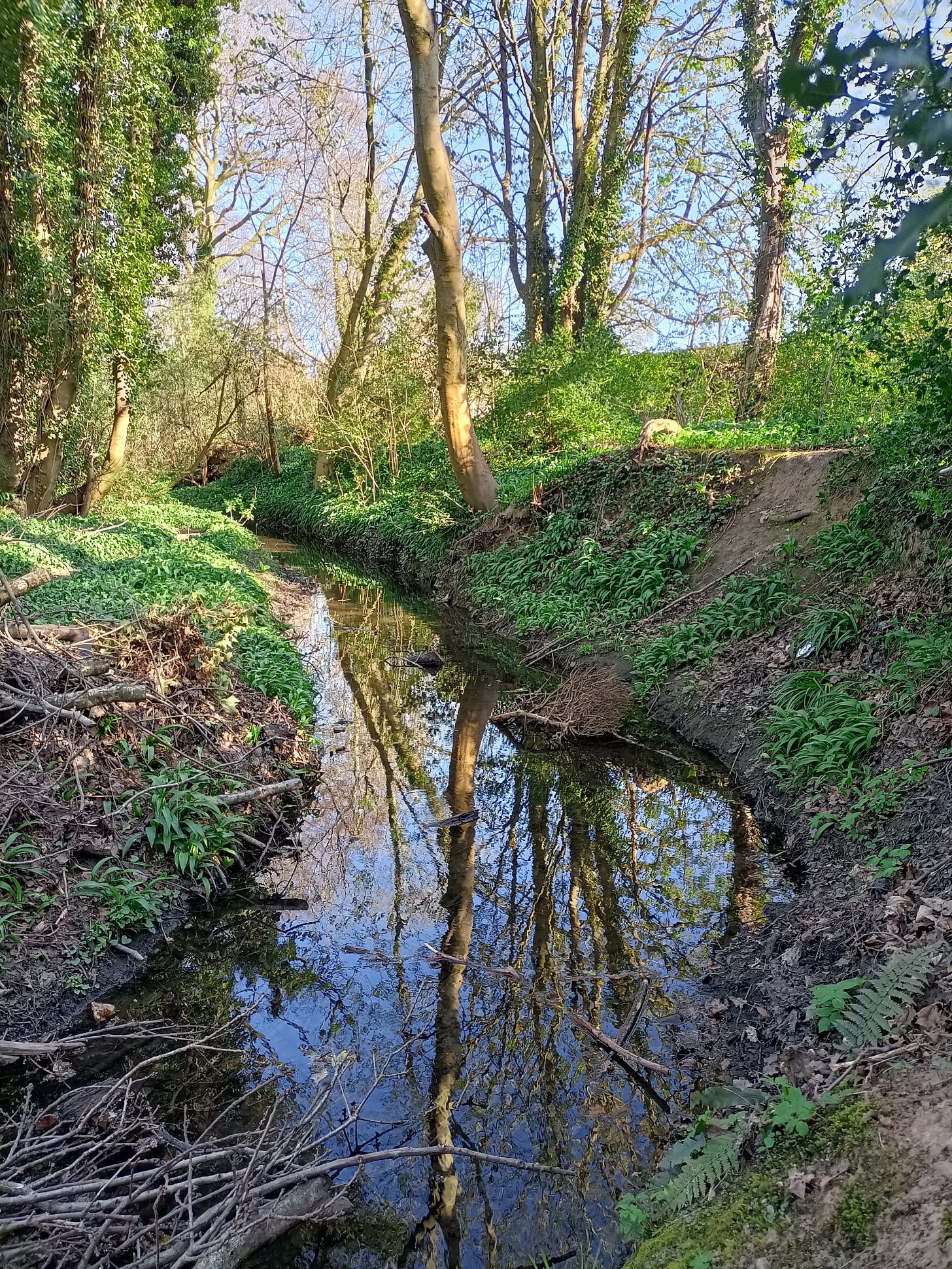
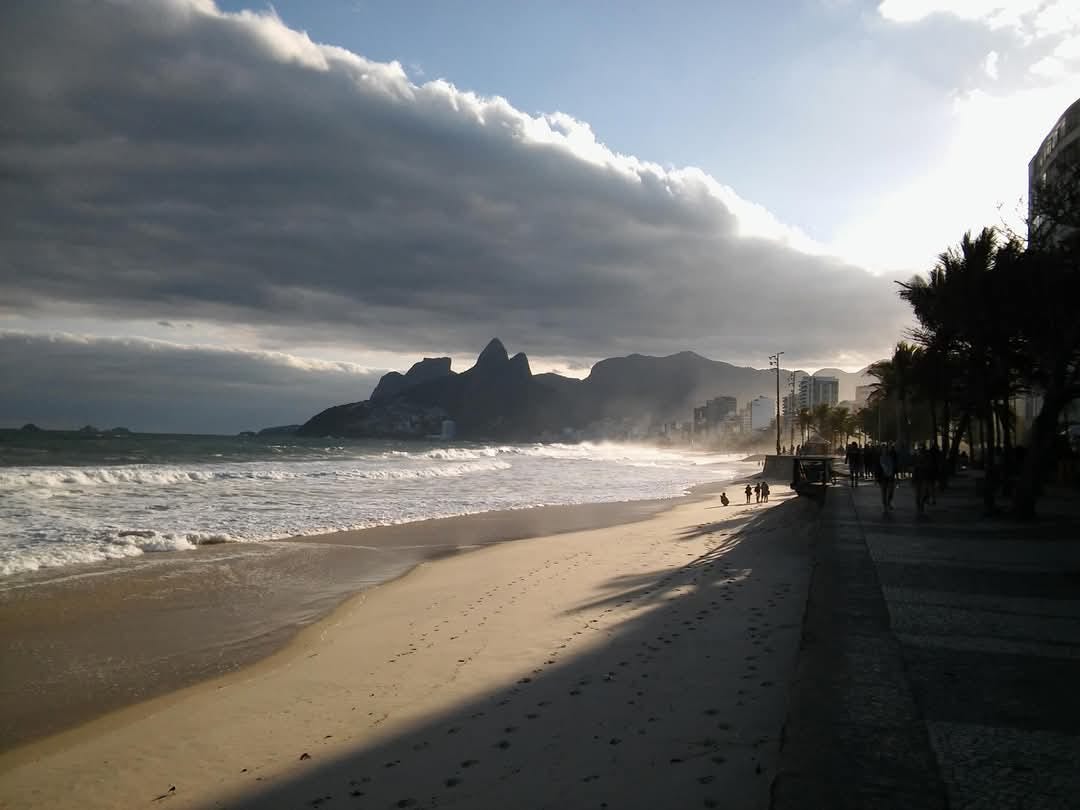
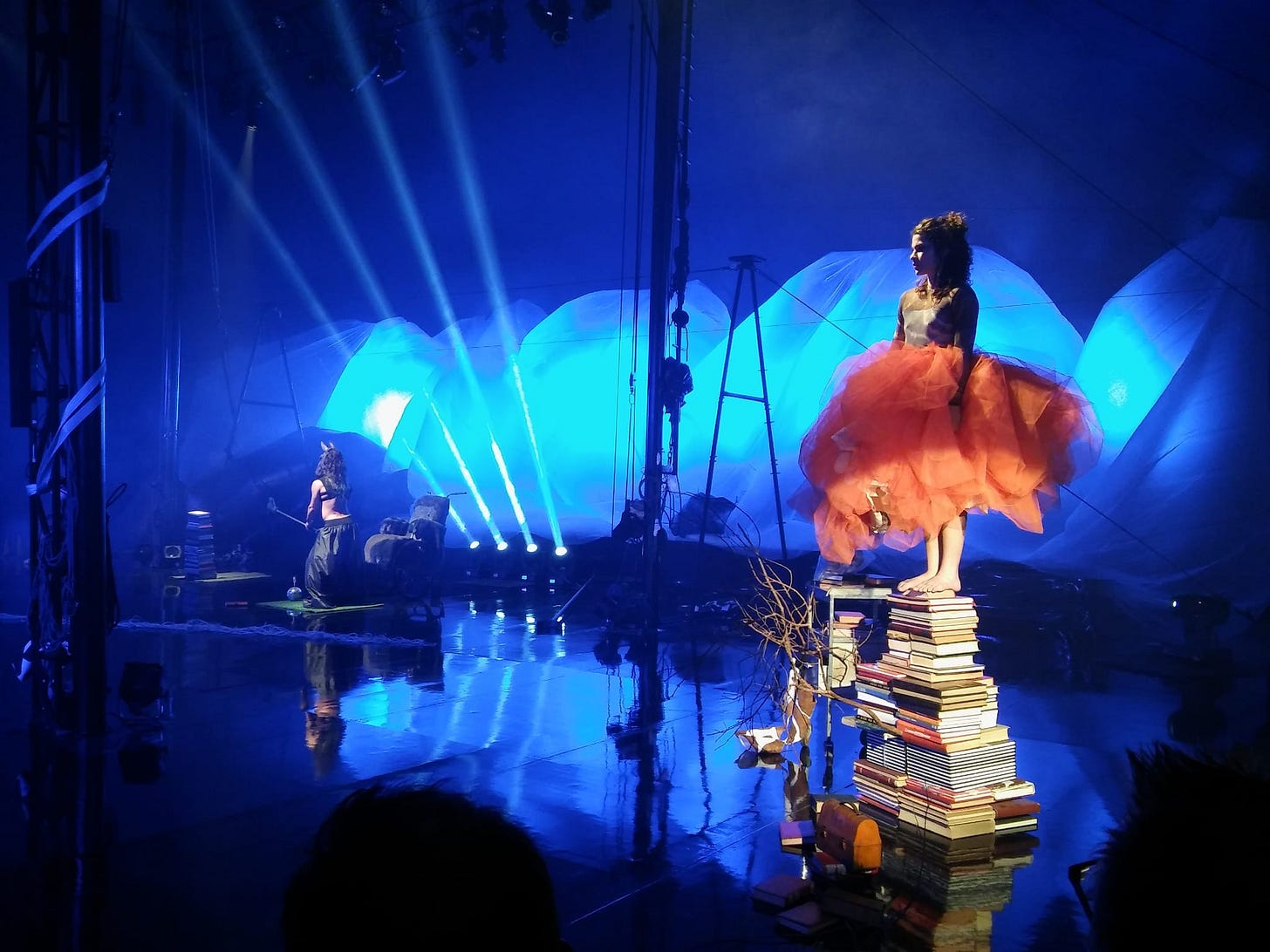
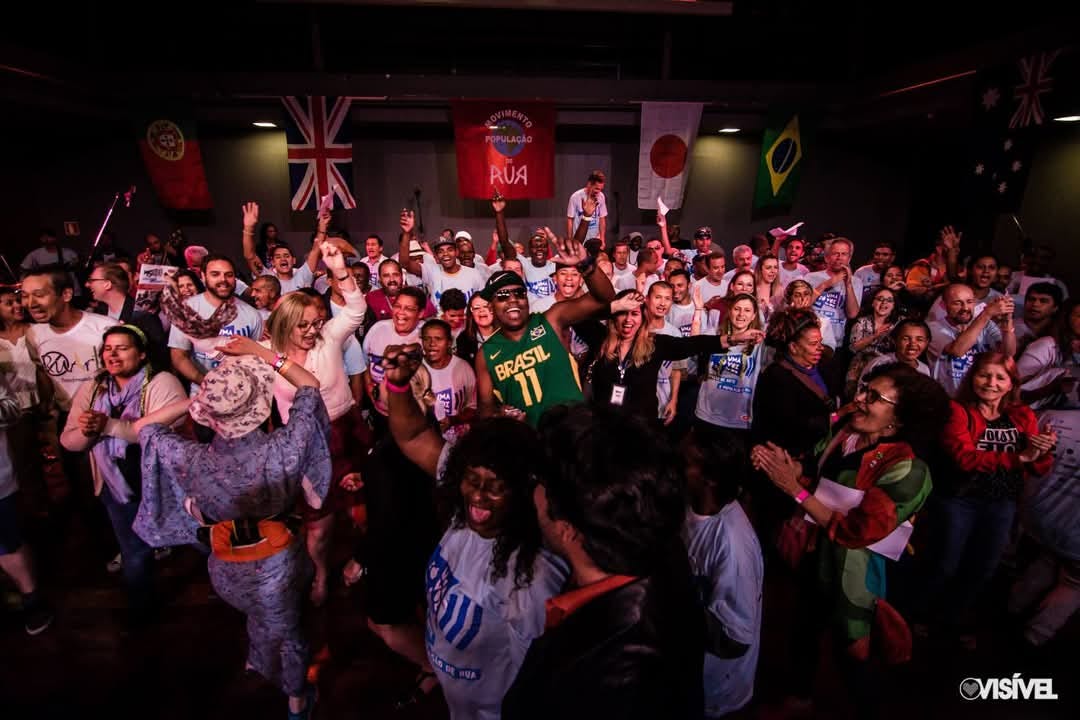
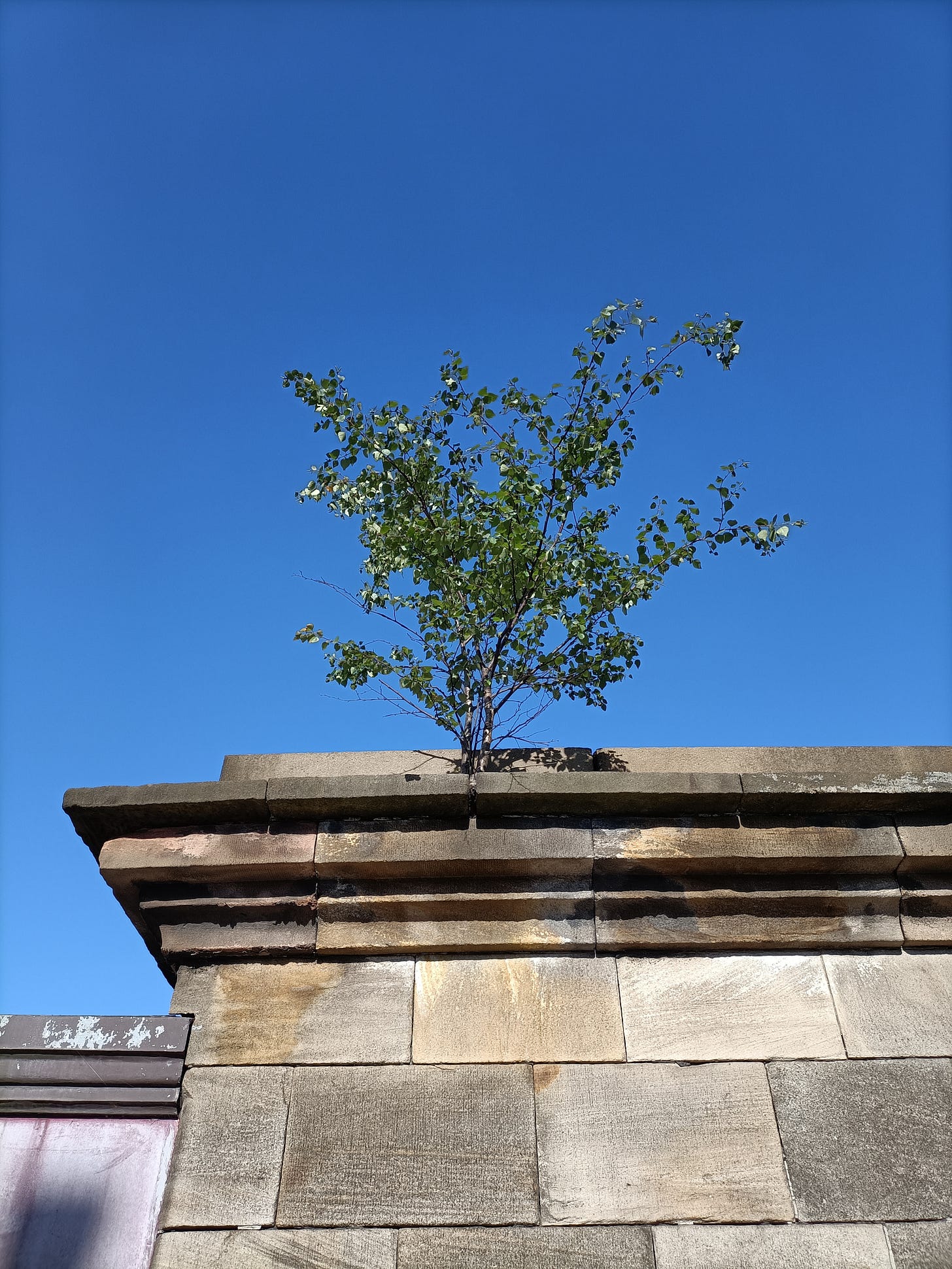
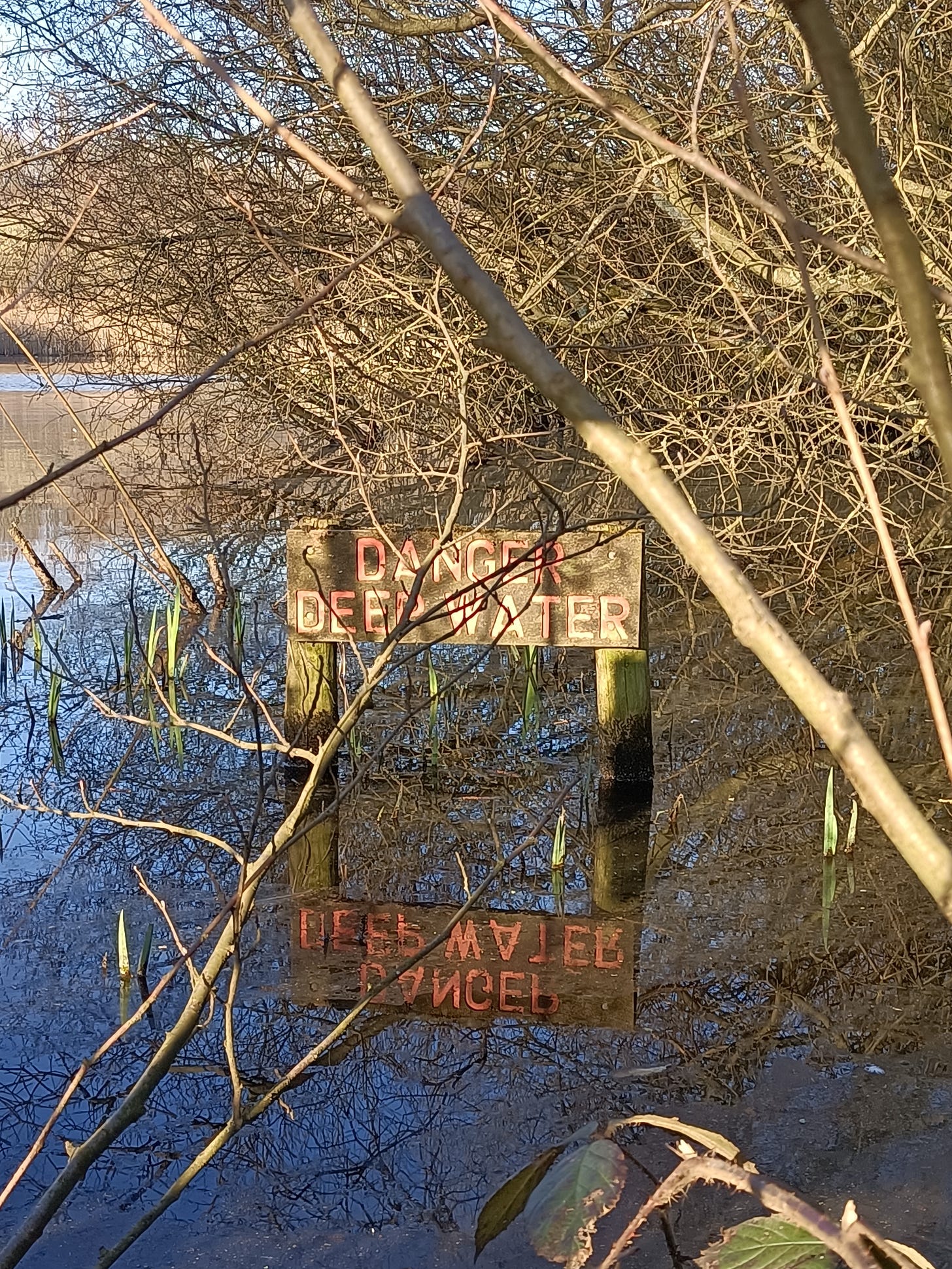

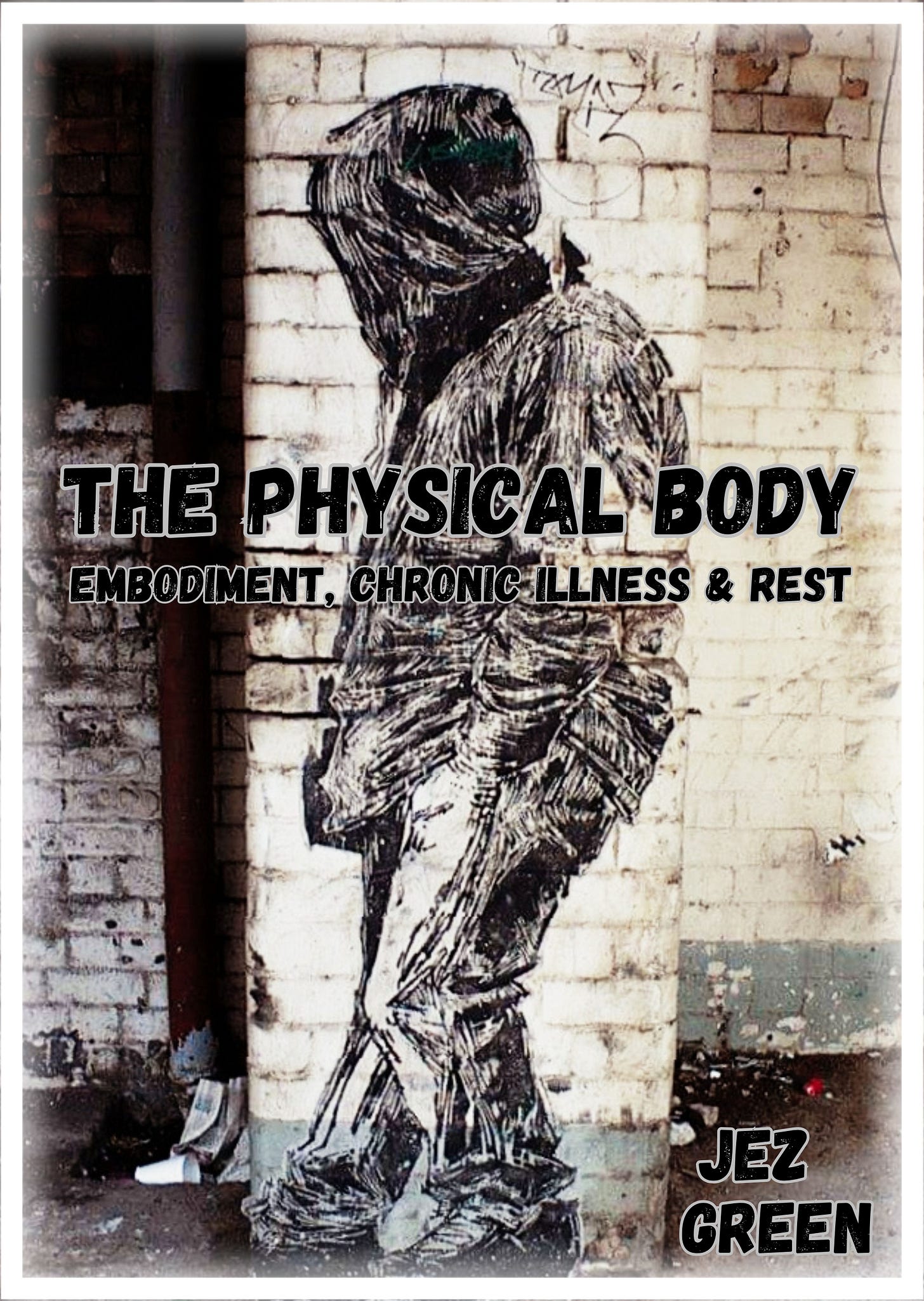
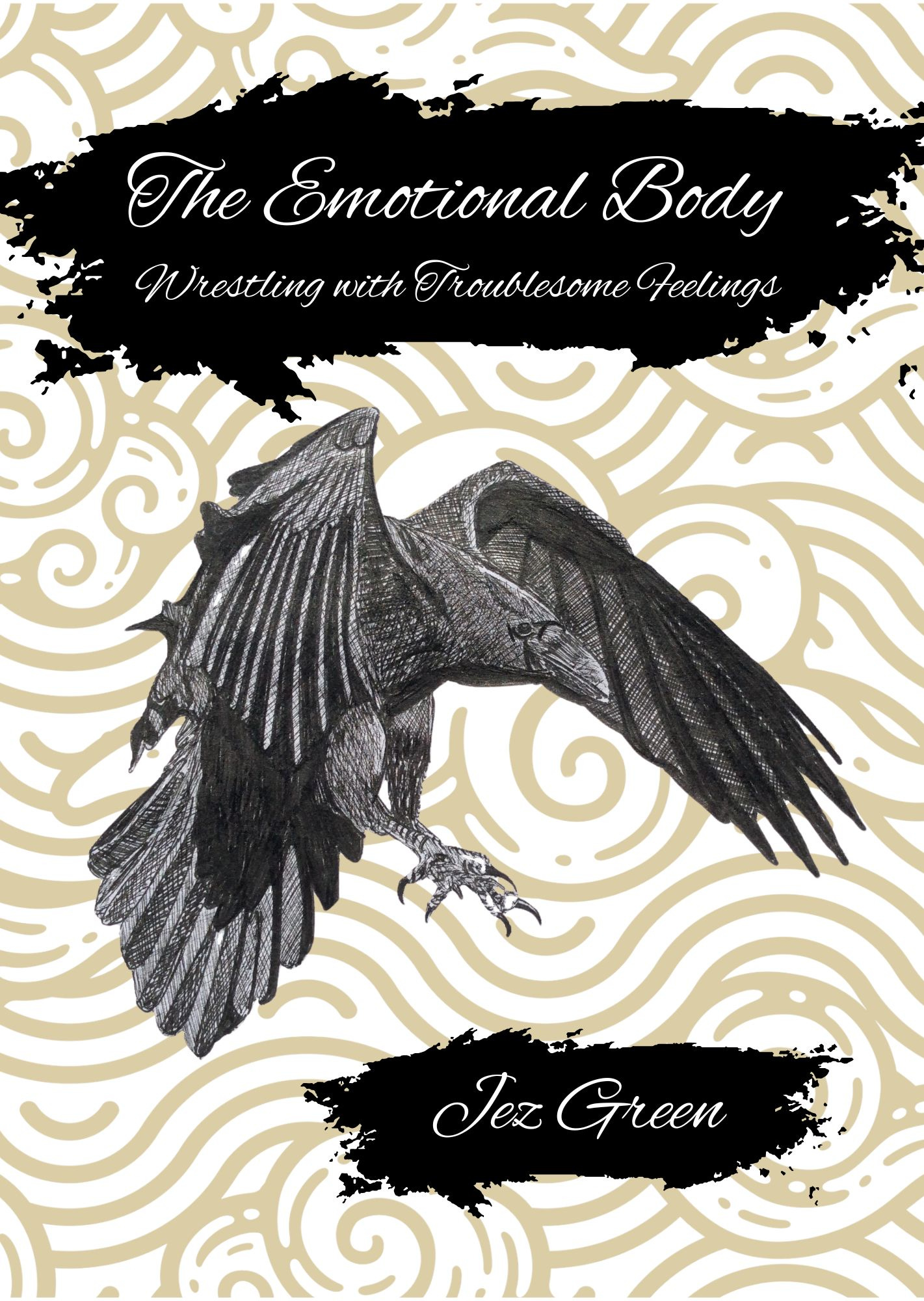
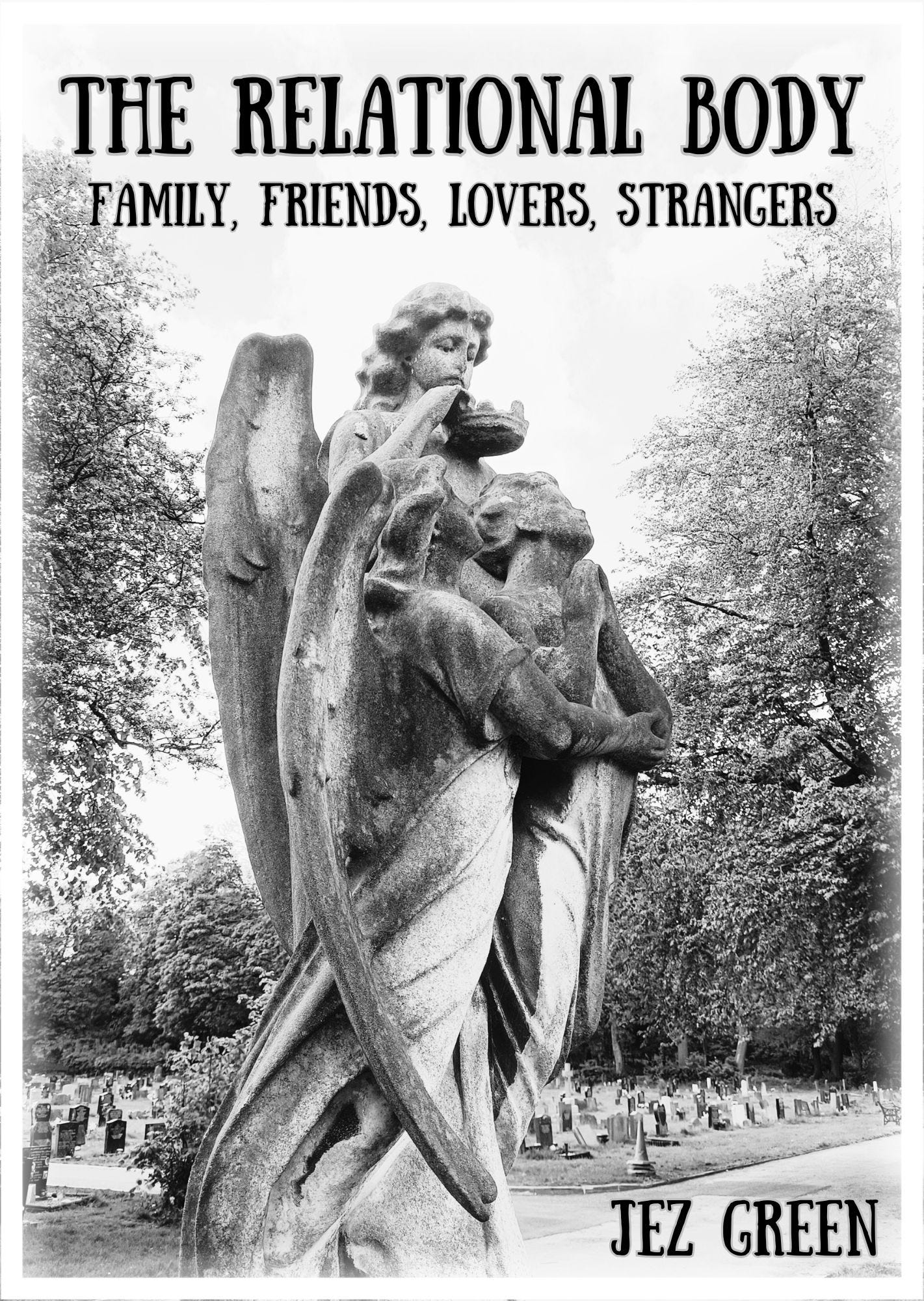









Share this post